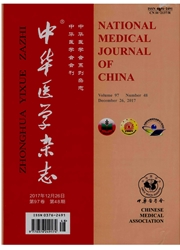

 中文摘要:
中文摘要:
目的:探讨首发精神分裂症患者家属认知水平与患者康复效果的相互关系,为家属实施认知教育提供依据。方法:将100例首发精神分裂症患者的家属随机分为干预组和对照组。干预组实施个体化认知干预,跟踪随访。记录两组患者服药依从性及病情复发情况,在患者出院后第3个月、第12个月用家庭关怀指数问卷(APGAR)、社会功能缺损量表(SDSS)进行测评。结果:干预组患者服药依从性显著高于对照组,复发率显著低于对照组。干预组患者APGAR分值逐步升高,SDSS分值逐步下降,两组比较差异有显著性。结论:对首发精神分裂症患者家属进行个体化的认知干预,能改变他们对患者治疗的消极态度,使他们积极支持患者维持治疗,促进患者疾病的康复。
 英文摘要:
英文摘要:
Objective: To explore the relationship of the cognitive level of family dependents of patients with first onset schizo- phrenia and rehabilitation effect of the patients, and to provide theoretical guidance for family dependents implementation cognitive edu- cation. Methods: 100 cases of family dependents of patients with schizophrenia were randomly divided into intervention and control groups, the intervention group received individualized cognitive intervention and followed up. To record medication compliance and dis- ease recurrence of the patients, in the third and the 12th months, evaluated the patients with a family care Index Questionnaire (AP- GAR), social function impairment scale (SDSS) in both groups after patients discharge. Results: In the intervention group , the drug compliance of patients were significantly higher , the relapse rate were significantly lower than the control group, intervention patients APGAR score gradually increased, SDSS scores gradually decreased, the difference was significant. Conclusions: Implementation indi- vidualized cognitive intervention on the family dependents of patients with first onset schizophrenia, can change their negative attitude, enable them to actively support the maintenance treatment of patients, and promote the rehabilitation of patients with the disease.
 同期刊论文项目
同期刊论文项目
 同项目期刊论文
同项目期刊论文
 期刊信息
期刊信息
